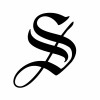
The Bangladesh Bank yesterday ordered banks to set a rational spread between the buying and selling rate of the US dollar after it unearthed that some banks are involved in manipulation to benefit from the shortage of the greenback.
The move is aimed at preventing banks from selling dollars quoting a higher rate to importers than the price offered to exporters. A spread refers to the difference between the buying and the selling rates.
Currently, banks sell a US dollar for up to Tk 108 to importers although they purchase the greenback at Tk 94 from exporters. This means the spread is Tk 16.
The BB took the decision at a meeting with the Bangladesh Association of Bankers, a platform of managing directors of banks, and the Bangladesh Foreign Exchange Dealers’ Association (Bafeda), a platform of banks that frame rules for inter-bank foreign exchange business in discussion with the BB.
The meeting was held at the BB headquarters in the capital.
Currently, banks sell a US dollar for up to Tk 108 to importers although they purchase the greenback at Tk 94 from exporters. This means the spread is Tk 16
As per existing norms, the spread of the buying and selling rate of dollars is a maximum of Tk 1, but banks have hardly followed the rule since April after volatility hit the market, fuelled by a sharp increase in import bills.
“Banks have been asked to gain a certain profit from the buying and selling of dollars,” Md Serajul Islam, spokesperson of the BB, told reporters after the meeting.
Md Ataur Rahman Prodhan, chairman of the Bafeda, said both ABB and Bafeda would hold a meeting soon to take a decision to this effect.
Then, the BB will examine whether the spread would be helpful for the market, said a central banker, seeking anonymity.
Banks have been asked to submit their data on the buying and selling rates of dollars, said Serajul.
“We will take measures against the banks that will sell dollars to importers at an excessive rate and buy it at a lower rate from exporters,” Islam said, adding that the central bank is now constantly monitoring the market.
A huge gap between the buying and the selling rates of US dollars in the banking system came to light last week after the BB instructed six banks to remove their head of treasury departments as they helped their employers to gain excessive profit by taking advantage of the ongoing volatility in the forex market.
Exporters, importers and business leaders, however, had publicly accused banks of making excessive profits much before the BB action.
Higher imports sent the reserves below $40 billion compared to more than $48 billion in August last year as export receipts and remittance flows have failed to plug the gap. This pushed the exchange rate of the US dollar to as high as Tk 112 in the interbank foreign exchange market.
In the kerb market, the rate even rose to Tk 118 per USD recently.
The record US dollar price is proving costlier for the economy since import costs have gone up, fanning inflation, which rose to a nine-year high in the last fiscal year that ended in June.
As a result, the people, particularly the poor and the lower-income groups, have been dealt with a massive blow since they are being forced to pay higher prices for everything they consume and use as the government raised fuel prices sharply twice in nine months as well as the fertiliser price to prevent the reserves from depleting further.
“Banks made a promise that they would play an effective role in restoring the stability in the market,” said Serajul.
Banks have also been asked to bring in the export proceeds from abroad and convert them into cash in the shortest possible of time to reduce the ongoing pressure in the market.
Serajul informed the opening of letters of credit had decreased by nearly $1 billion in the first 11 days of August compared to the same period a year ago.
“This will help the market restore stability in the banking sector,” he said.










